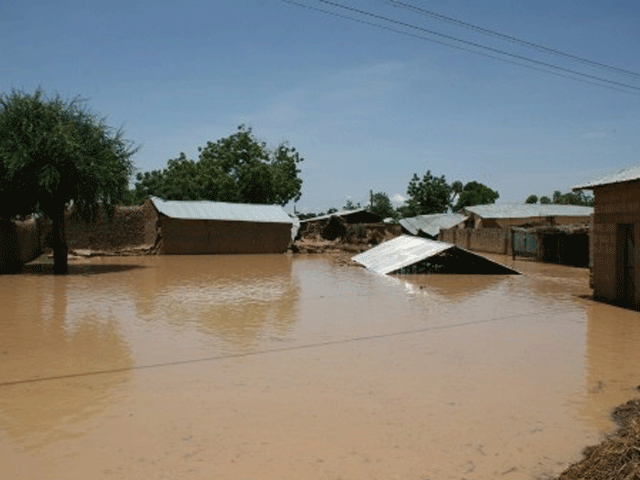
By Fatima Saka
The Minister of Environment for State Dr. Iziaq Kunle Salako for state has emphasized on how the 2 million populations of Nigeria constitutes 32 million tons of waste yearly, saying that this unhealthy act led to perennial flooding across the country, increased respiratory and cardiovascular diseases, increased incidences of cancer, loss of aquatic life, and agricultural productivity.
He added that these waste are dumped in open spaces, sometimes with hazardous materials and burnt openly.
Salako made this statement at the Ogun State Environmental Protection Agency’s Second Chemical Handler and Users Workshop, on Tuesday in Ogun State.

The Minister stressed that chemicals are an essential part of modern society, as they are produced and used in almost every sector of the society, adding that these include: industry, health, energy, transport, agriculture, construction, textiles and consumer products.
“The importance of chemicals to the economy of a nation cannot be overemphasized as affirmed by the International Council of Chemical Associations (ICCA). According to ICCA, the sector contributes an estimated US$5.7tn, or 7%, to the world gross domestic product (GDP) through direct, indirect, and induced impacts, supporting 120 million jobs worldwide.
“However, while they contribute significantly to the well-being of society, they also pose a threat to human health, the environment and sustainable development if they are not managed responsibly,” he said.
Salako lamented while quoting the United Nations Environment Programme (UNEP) data, saying nearly 140,000 industrial chemicals are marketed worldwide including in Nigeria, meaning that hazardous chemicals, products containing them, their hazardous wastes and related pollutants continue to be released and disposed of in large quantities.
He said: “The result is not only the negative impact on the environment but also on humans and animals exposed to these chemicals in different ways, causing different biological responses and oftentimes leading to serious health issues.
“Suffice it to say that some of our cries about “spiritual attack” from our village people on our health are purely consequences of the mismanagement of chemicals.
“Therefore, as the global community navigates through the challenges of chemicals utilization and their deleterious effects and works toward achieving development in a responsible manner devoid of consequences that would negatively impact the health of the people, Nigeria cannot afford to sit back and conduct its business as usual but must make an intentional all-inclusive and properly contextualized effort to fight the environmental ills brought about by industrialisation.
“Achieving this is not possible without the circular economy principle; hence, a sustainable, future-focused economy must include its development which this forum is providing an opportunity for a better understanding of the economic model.”
However, the minister said large volume of waste generated in the country presents circular economy business opportunities across the waste management value chain.
He added that this should properly harnessed for job creation, establishment of micro, small and medium scale enterprises, private sector investment including foreign direct investment through: “Building community material recovery facilities, recycling centers, transfer loading stations, composting facilities, Battery recycling and export, E-waste recycling, PET recycling for industries, Refuse Derived Fuel (RDF) to power cement kilns, Animal feed production, Waste to energy and off-grid solutions, Waste purchasing and reintroduction to manufacturers as raw materials or energy sources, Ocean clean-up solutions, Biodiesel plant.”
“Consequently, the ministry is taking proactive measures to promote sound circular economy principles and practices in the country. These measures include: “Strengthening relevant policies, and institutional and regulatory framework to address identified gaps, Building the capacity of manufacturers and producers to embrace the principles of cleaner production and circular economy in their operations, Enforcing national policies on chemicals management, solid waste management, plastic waste management and battery waste management, Implementation of the Extended Producer Responsibility (EPR) Programme, Developing and implementing a waste-to-wealth entrepreneurship programme for the empowerment of the most vulnerable group in the society.
“Putting in place a national plastic waste recycling programme aimed at establishing at least one plastic recycling plant in each of the 774 Local Government Areas in the country, Putting in place a community-based waste management programme that encourages the involvement of local communities in modern waste management practices such as waste sorting, segregation, composting and recycling, Raising consumer awareness around sustainable purchasing practices by increasing consumer demand for greener, safer and healthier services and products.”



